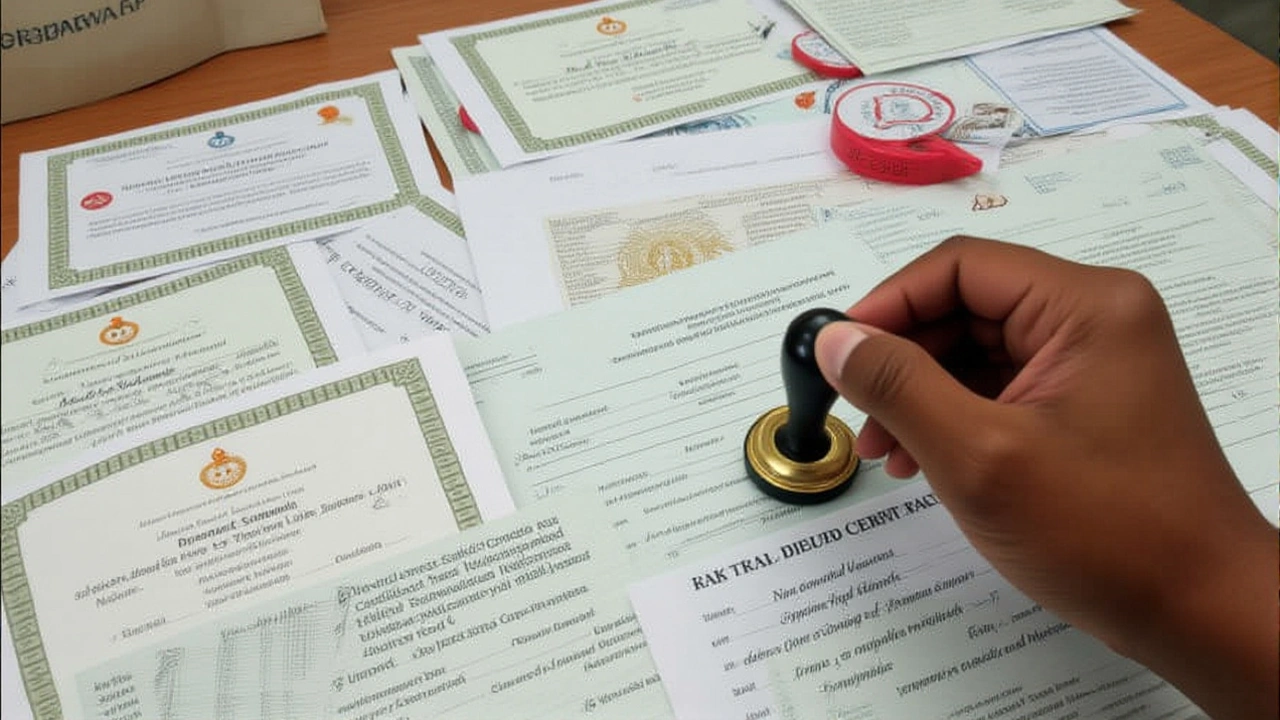National Credential Verification Service: Quick Guide
If you’ve ever needed to prove a qualification, professional licence or any official document, you’ve probably hit a roadblock: how do you prove it’s real? In South Africa the answer is the National Credential Verification Service (NCVS). It’s a government‑run platform that checks whether a credential – like a diploma, nursing certificate or driver’s licence – actually belongs to the person presenting it.
What the Service Does
NCVS pulls data straight from the issuing authorities and matches it against the details you give. The result is a simple report that says “verified”, “not found” or “mismatch”. Employers use it to avoid costly hiring mistakes, schools use it to stop fraud, and individuals use it to clear up any doubts before applying for a new job or loan.
Because it’s a single source, you don’t have to chase down each institution separately. The system also logs every request, so you can track when and by whom a credential was verified. That audit trail adds an extra layer of trust for everyone involved.
How to Access It
Getting a verification is straightforward. First, visit the official NCVS portal and create a free account. You’ll need a valid ID number and an email address – the same details the service will use to confirm your identity.
Once logged in, select the type of credential you want to check, upload a clear scan or photo, and fill in any extra fields like the issuing year or institution name. The platform typically returns a result within minutes, but some records may take up to 24 hours if they need manual review.
If you’re an employer, you can also set up bulk‑verification tools that let you upload a CSV file with multiple candidates. The system will process each entry and send back a spreadsheet of results, saving you heaps of time.
There are a few things to watch out for. The service only covers credentials that are officially registered with the government, so a private course that isn’t recognised won’t show up. Also, each verification costs a nominal fee – usually a few rand – to keep the system running.
Why bother? Because a fake qualification can cost a company millions in lost productivity, legal fees or even safety incidents. For individuals, a verified credential can speed up visa applications, loan approvals, and career moves. In short, NCVS is a small step that prevents big problems later.
All that said, the most useful tip is to keep your digital copies organized. Label each file with the credential name, issuing year and institution, then store them in a cloud folder you can easily share. When it’s time to verify, you’ll have everything ready and won’t waste time hunting for paperwork.
Bottom line: the National Credential Verification Service is a practical, reliable way to prove who you are and what you’ve earned. Whether you’re hiring, studying or applying for a loan, a quick check can give you peace of mind and keep the process moving forward.

Nigeria's Federal Government Sets Oct 6 Deadline to Eradicate Fake Certificates
Nigeria's government mandates all public and private institutions to verify staff qualifications via the new NCVS platform by Oct 6 2025, aiming to eradicate fake certificates.
Categories
- Sports (146)
- Politics (22)
- Entertainment (20)
- World (15)
- News (10)
- Lifestyle (8)
- Business (6)
- Technology (3)
- Health (3)
- Environment (2)
Popular Articles



